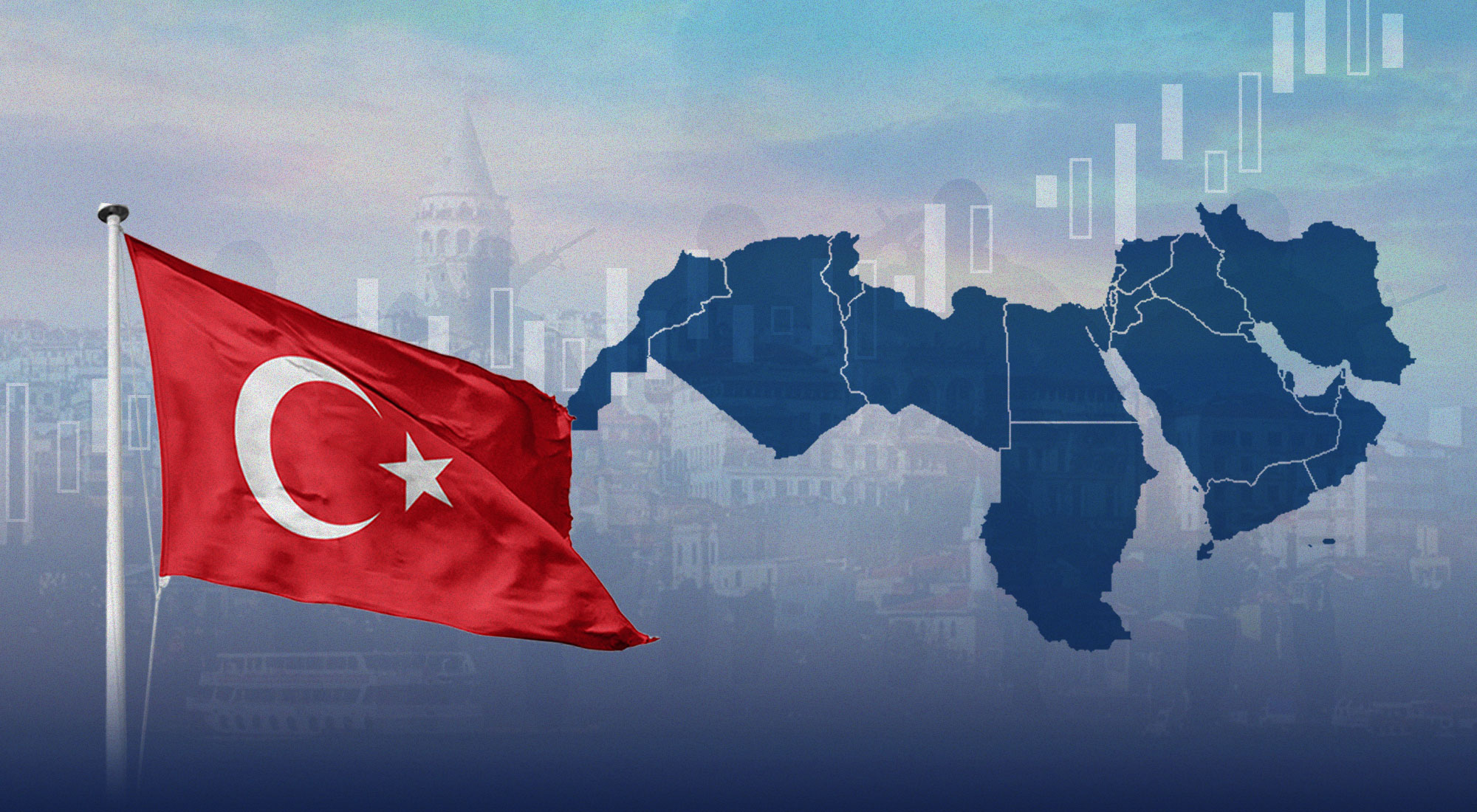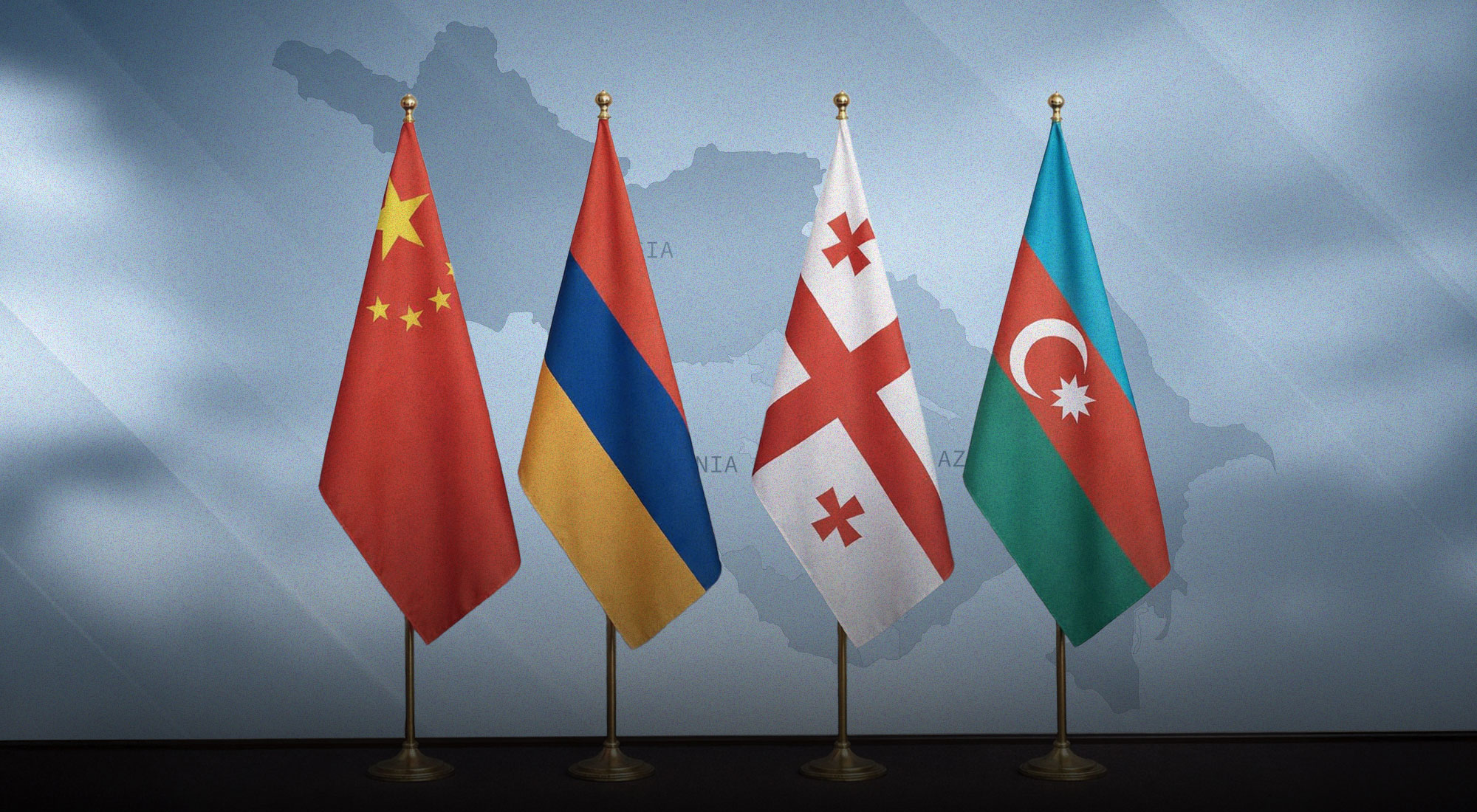Introduction
Political and economic relations between China and Africa have greatly intensified in recent years. China’s influence in the African continent is growing as a result of its large-scale investments and assistance to African countries. However, these investments are directed at only certain countries in Africa based on Chinese interests. Nigeria is one such African country at the heart of China’s Africa policy. While China is viewed by some as a significant stakeholder in the development of Nigeria, others view this partnership with skepticism. This insight will attempt to demonstrate the geostrategic goals and interests of China in Nigeria and the nature of relations between the two countries.
China’s geostrategic interests in Africa
China’s policy in Africa is not just economic in nature. According to Zhang Hongming, a senior research fellow at the Chinese Academy of Social Sciences, “Africa is the cornerstone of Chinese diplomacy, […] its unique position and role should not be underestimated […] because the 53 [African] allies not only widen the radius of China’s activities on the international stage, but also enhance the strategic depth of China’s game with the United States, thus strengthening China’s initiative and influence in international affairs.”[1]
In order to understand the reasons behind China’s investment deals and infrastructure projects in Africa, we need to understand China’s geostrategic ambitions. China‘s relations with the African continent have been relatively smooth and trouble-free due to “a shared sense of historical victimization by Western colonial powers and a common identity/affinity as developing countries.”[2] This special affinity has provided China with potential ground for it to promote its economic and political model, with the ultimate goal of exporting the “Chinese model” to the African continent.[3]
China has four primary interests in the African continent. First and foremost, China wants access to the continent’s oil and gas. It has already invested significantly in countries like Sudan, Nigeria and Angola, and it is estimated that by 2020 China’s worldwide oil imports will exceed that of the US. Second, the African continent constitutes a huge market for goods exported from China, which may aid China’s intention to shift its economy away from labor-intensive industries. Third, China is intent on increasing its political legitimacy and global influence, which it believes it can achieve through the strengthening of Sino-African relations. Last but not least, China is seeking to play a more prominent role in securing stability in the region in an effort to reduce potential threats to its economic interests.[4]
Background to China-Nigeria relations
China started official diplomatic relations with Nigeria in 1971; however, these relations were considered weak in the initial stages. When Nigeria announced its independence in 1960, the then prime minister Abubakar Tafawa Balewa’s conservative–democratic government was not likely to build any ties with China’s communist leadership. A turning point was marked in relations between the two countries in 1971, when Nigeria started to flourish with income from oil production, and in 2000, with the adoption of the Program for China-Africa Cooperation in Economic and Social Development at the FOCAC Ministerial Conference.[5]
Economic partnerships between the two nations
Economic and trade cooperation are important tools in strengthening relations, which has been China’s approach in its Africa policy. China’s investments in Africa are long-term in nature and include infrastructure projects in 35 African countries, particularly in the power, transport and ICT sectors.[6] China has invested heavily in Nigeria and has benefitted from many construction and investment projects that have led to the strengthening of bilateral relations between the two countries.
According to a report by the Chinese embassy in 2019, China has 70 construction, 40 investment, and 30 trading companies in Nigeria, with Chinese companies being awarded with 175 construction contracts worth in the range of $17 billion USD in 2018 alone.[7] In 2018, Nigeria officially joined the Belt & Road Initiative (BRI) through the signing of a memorandum of understanding (MoU), making the country “a top investment destination for BRI projects in Africa.”[8] China has so far made major investments in rail line infrastructure,[9] a large-scale gas pipeline project,[10] and new airport terminals.[11]
The Chinese proverb, “If you want to get rich, build a road first,” is reflective of the importance China places on “connectivity” and the role infrastructure plays in achieving this.[12] Several rail roads have been built in Nigeria such as the Abuja-Kaduna railway, which began operations in 2016, and the Lagos-Ibadan railway, commissioned in 2021 – both of which were constructed by the China Civil Engineering Construction Corporation (CCECC).[13] During the colonial period in Africa, many rail roads were built by the British in order to link the seaports to the hinterland to ease transportation of agricultural and mineral produce. However, the development of these rail roads was stunted “due to continued neglect by successive post-colonial regimes.”[14]
In 2002, the then Nigerian President Olusegun Obasanjo, commissioned a strategic plan spanning 25 years to renovate these rail roads.[15] The goal was to “rehabilitate and transition existing rail routes toward higher-capacity standard-gauge tracks, and to connect all thirty-six major states and economic hubs by new railway networks.”[16] The Nigerian government has since counted on several global players to create a network of rail roads and expand them. The German-Nigerian firm Julius Berger is one such external company involved in these railway projects, but the lion’s share belongs to Chinese firms such as the China Civil Engineering Construction Company (CCECC), which is managing several large-scale infrastructure projects in Nigeria financed by the Exim Bank of China.[17]
Chinese interests are not concentrated on one pillar alone; China’s interest in Nigeria’s oil has grown significantly over the years. China reoriented its focus on Nigerian oil between 1999-2007, under the presidency of Olusegun Obasanjo. Relations between the two countries deepened with the establishment of the Forum on China–Africa Co-operation in 2000, a Nigeria Trade Office in China and a China Investment Development and Trade Promotion Centre in Nigeria in 2001, and the Nigeria–China Investment Forum in 2006. Chinese companies secured several major contracts in many sectors during this period, but a fundamental component of Obasanjo’s China policy was “oil for infrastructure”, which required that “bidders for oil blocs include in their bids a commitment to provide Nigeria with major infrastructural projects.”[18]
However, the concept of “oil for infrastructure” has more recently been replaced by a model in which “Chinese energy companies gain access to the country’s oil resources by buying stakes in established companies.”[19] China’s domestic oil production has been declining as a result of “natural depletion and other geological challenges,” which will eventually increase reliance on imports.[20] To this end, China has concentrated investments in Nigeria’s oil and gas industry, with Chinese investment in the industry reported at $16 billion.[21] The China National Offshore Oil Corp (CNOOC), China’s largest offshore oil and gas producer, runs several oil wells in Nigeria, producing around 800,000 barrels of oil per day.[22] CNOOC first invested in Nigeria in 2005 and is now the largest investor in Nigeria. In 2006, CNOOC acquired a 45% stake in the OML 130 deep water license, which is “located in one of the world’s most prolific oil and gas basins and contains the Akpo and Egina fields.”[23] In another deal the same year, Nigeria offered China National Petroleum Corp (CNPC) “first right of refusal” on four oil exploration blocks in an upcoming licensing round in exchange for a $4 billion infrastructure investment.[24]
China and Nigeria are linked by trade and investment. The huge amounts of oil and gas in Nigeria, and other natural resources, have been a major attraction for Chinese companies and investors. Nonetheless, Nigeria obtains loans from China to fund projects, and while the terms of these loans are quite lucrative for China, they come at a cost for Nigeria. China provided Nigeria with a loan of $3.121 billion USD in March 2020, which represents 3.94% of Nigeria’s total public debt. The interest rate is at 2.50% and is payable over 20 years with a seven-year grace period.[25] Table 1 illustrates the loans obtained from China as at March 31, 2020.
Table 1: China’s loans to Nigeria as at March 31, 2020.

Source: Debt Management Office Nigeria, https://www.dmo.gov.ng/facts-about-chinese-loans-to-nigeria.
China’s debt strategy
While both China and Nigeria appear to be mutually benefitting from their bilateral relations, the Western world has been viewing China’s increasing involvement in Nigeria with skepticism.[26] On several occasions, the European Union has accused China of exploiting Nigeria, claiming that the “unequal relations” between them will only hinder Nigeria’s economic development.[27] China’s debt strategy has also been described as “a new form of economic colonialism,”[28] which is reminiscent of the quote by John Adams: “There are two ways to conquer and enslave a nation. One is by the sword and the other is by debt.”[29]
Several observers have expressed concerns over what they describe as “Chinese debt trap diplomacy,”[30] which essentially refers to the borrowing nation having to forfeit its stakes in the infrastructural developments tied to its loans. Nigeria owes China $3.1 billion USD and the question remains as to whether Nigeria can repay this debt and avoid falling into what has been termed the “Chinese debt trap.”[31] Following China’s takeover of Sri Lanka’s Hambantota port due to defaults in loan repayments and rumors that China may take over Zambia’s power company ZESCO to recover its loan, only casts further doubt over the future of Nigeria’s “rising indebtedness to the Chinese.”[32]
Nigeria’s debt servicing is already consuming a huge chunk of the country’s total revenue, as “60 of every 100 naira generated by the Government goes towards servicing debt, with interest payments exceeding capital spending since 2014.”[33] Moreover, Nigeria is China’s largest source of revenue from projects, third only to Algeria and Angola, generating $34.2 billion USD for Chinese companies between 2000-2016.[34]
China’s non-interference policy
With China emerging as a world power, its position in the international arena has gained prominence. Yet, China has a unique approach to international affairs, which is reflected in its foreign policy. When a ten-point declaration for the promotion of cooperation and world peace was introduced at the 1955 Afro–Asian Conference in Bandung, China was quick to adopt one of its principles as the cornerstone of its foreign policy. China’s long-held principle of “abstention from intervention or interference in the internal affairs of another country” has been a crucial element of its foreign policy despite its expanding role as a mediator in the internal disputes of other countries.[35]
With China’s growing global presence, maintaining such a policy is proving to be difficult. In major projects like the BRI, China has had to mediate with numerous countries. In 2017, China was engaged in mediation efforts in nine countries,[36] and is currently mediating in Afghanistan, Iran, South Sudan, Syria, Yemen, and Bangladesh-Myanmar, among others. In Syria, for instance, China has showed support for Bashar al-Assad and defended the Syrian government against UN resolutions condemning the regime.[37] In 2008, during the counter-insurgency campaign in Sudan, China intervened by deploying soldiers to UN peacekeeping operations.[38]
Despite China’s “non-interference policy”, it is being forced to enter into mediation activities. These mediation efforts increased following the launch of the BRI initiative.[39] For China, security and stability along the BRI are important factors in realizing its projects and maintaining the flow in revenue. The question is: how will China follow through with its “non-interference policy” and still play its part in international mediation?
In order to be able to understand the situation, it would be useful to look at how China views its mediation activities in international conflicts and how it justifies these efforts. One recent example of China’s mediations is that of the Horn of Africa. Chinese officials explain their position by underlining the importance of integration and the linking of the Horn of Africa countries with infrastructure to reduce border disputes, which would ultimately help their economies flourish and enable them to retain their sovereignties China sees these disputes and disagreements as obstacles toward regional growth. As Xue Bing, Special Envoy for the Horn of Africa, points out: “Some Western media outlets tend to look at things from the perspective of geopolitics and major power games. But this is not China’s intention … Africa is not an arena for major power games, and external forces arbitrarily interfering in regional affairs and the internal affairs of regional countries will only exacerbate the complexity and instability of the situation, and will not be conducive to truly solving the problems.”[40]
One argument, however, is that China’s mediation efforts are part of “a carefully devised conflict management strategy” that fits in with its non-intervention policy, thus taking on “the role of peace broker is a ‘legitimate way’ of intervening in the domestic politics of other states to promote its own national economic interests and political influence in the region, without going against its traditional guiding principles.”[41]
Despite China being accused by the EU and other countries of exploiting Africa’s natural resources, employing Chinese rather than local laborers, providing sub-standard services, and working with autocratic regimes, the image that Africans have of China is rather positive. In 2014-2015, Afrobarometer conducted a survey across 36 African countries to measure the perceptions of Africans on Chinese investments and influence in their countries. According to the results of the survey, China is the second most popular model for national development, after the United States. The results also indicate that 63% of Africans view China as a positive influence in their country as a result of infrastructure investments and business development.[42]
Conclusion
All in all, despite world skepticism, Nigeria views China as a critical development partner for its comprehensive development plan. Nigeria is a developing country and needs the financial boost to build a sustainable economy that meets their aspirations. China has taken that mission upon itself while taking into consideration its own national interests. Even if China prioritizes its own interests, it would still be assisting Nigeria in developing its infrastructure and economy, making it a “win-win situation” for both parties. However, Nigeria should tread carefully when it comes to loans and not count on China alone. The country should also turn to other entities and involve the private sector in their development plans in order to strike a balance.
References
[1] Thierry Pairault, “China’s Presence in Africa Is at Heart Political,” The Diplomat, August 11, 2021, https://thediplomat.com/2021/08/chinas-presence-in-africa-is-at-heart-political/.
[2] Yun Sun, Africa in China’s Foreign Policy (Brookings, 2014), https://www.brookings.edu/wp-content/uploads/2016/06/africa-in-china-web_cmg7.pdf.
[3] United States-China Economic and Security Review Commission (USCC), Hearing on China’s Strategic Aims in Africa, One Hundred Sixteenth Congress Second Session, May 8, 2020, https://www.uscc.gov/sites/default/files/2020-06/May_8_2020_Hearing_Transcript.pdf.
[4] Larry Hanauer and Lyle J. Morris, “China in Africa: Implications of a Deepening Relationship,” Research Brief, RAND Corporation, 2014, https://www.rand.org/pubs/research_briefs/RB9760.html.
[5] See Forum on China-Africa Cooperation, http://www.focac.org/eng/ltjj_3/ltjz/.
[6] IDE-JETRO, Data & Resources: China in Africa, Manual Report, https://www.ide.go.jp/English/Data/Africa_file/Manualreport/cia_10.html.
[7] Nwachukwu Egbunike, “Belt and Road Initiative Projects Ramp up Nigeria’s Favourable Perception of China: Is China’s Silk Road Leading Nigeria to Sufficiency or Imperialism?” Global Voices, June 7, 2021, https://globalvoices.org/2021/06/07/belt-and-road-initiative-projects-ramp-up-nigerias-favourable-perception-of-china/.
[8] Krystal Lee, “BRI Initiative in Africa,” Thomson Reuters, March 22, 2021, http://arbitrationblog.practicallaw.com/bri-initiative-in-africa/.
[9] Belt and Road Initiative (BRI), “BRI Projects,” https://www.beltroad-initiative.com/projects/.
[10] Yu Jie and Jon Wallace, “What is China’s Belt and Road Initiative (BRI)?” September 13, 2021, Chatham House, https://www.chathamhouse.org/2021/09/what-chinas-belt-and-road-initiative-bri.
[11] Nwachukwu Egbunike, “Belt and Road Initiative Projects Ramp up Nigeria’s Favourable Perception of China: Is China’s Silk Road Leading Nigeria to Sufficiency or Imperialism?” Global Voices, June 7, 2021, https://globalvoices.org/2021/06/07/belt-and-road-initiative-projects-ramp-up-nigerias-favourable-perception-of-china/.
[12] Angang Hu, “The Belt and Road: Revolution of Economic Geography and the Era of Win-Winism,” in China’s Belt and Road Initiatives: Economic Geography Reformation, ed. Wei Liu (Singapore: Springer, 2018).
[13] Niyi Oyedeji, “How Chinese-Built Railway Projects are Easing Mobility, Saving Lives in Nigeria,” International Centre for investigative Reporting, March 22, 2022, https://www.icirnigeria.org/how-chinese-built-railway-projects-are-easing-mobility-saving-lives-in-nigeria/.
[14] Azalahu Francis Akwara, Joseph Effiong Udaw and Gerald E. Ezirim, “Adapting Colonial Legacy to Modernism: A Focus on Rail Transport Development in Nigeria,” Mediterranean Journal of Social Sciences 5, no. 6 (April 2014), https://www.richtmann.org/journal/index.php/mjss/article/view/2440.
[15] Yunnan Chen, China’s Role in Nigerian Railway Development and Implications for Security and Development, Special Report 423 (Washington D.C.: United States Institute of Peace, 2018), https://www.usip.org/sites/default/files/2018-04/sr_423_chen_final.pdf.
[16] Ibid.
[17] Ibid.
[18] Gregory Mthembu-Salter, Elephants, “Ants and Superpowers: Nigeria’s Relations with China, South African Institute of International Affairs,” Occasional Paper No. 42, September 2009, https://saiia.org.za/research/elephants-ants-and-superpowers-nigeria-s-relations-with-china/.
[19] Ibid.
[20] Chika Oduah, “China Invests $16 Billion in Nigeria’s Oil Sector,” Voa News, August 28, 2019, https://www.voanews.com/a/africa_china-invests-16-billion-nigerias-oil-sector/6174771.html.
[21] Ibid.
[22] Ibid.
[23] “Understanding Chinese Investment in African Oil and Gas,” Africa Oil Week, October 3-7, 2022, https://africa-oilweek.com/articles/understanding-chinese-investment-in-african-o.
[24] “Nigeria to Give China Oil Rights for Investment,” NBC News, April 26, 2006, https://www.nbcnews.com/id/wbna12497463.
[25] Debt Management Office Nigeria, “Facts about Chinese Loans to Nigeria,” June 18, 2020, https://www.dmo.gov.ng/facts-about-chinese-loans-to-nigeria.
[26] Denis M. Tull, “China in Africa: European Perceptions and Responses to the Chinese Challenge,” SAIS Working Papers in African Studies, No. 02-08 (2008), https://www.swp-berlin.org/publications/products/fachpublikationen/Tull_China_Africa_SAIS_WP.ks.pdf.
[27] Ibid.
[28] Abiola Odutola, “Nigeria Is Falling into China’s Debt Trap,” Nairametrics, May 21, 2020, https://nairametrics.com/2020/05/21/china-nigeria-loan-nigeria-is-falling-into-chinas-debt-trap/; Nick Van Mead, “China in Africa: Win-Win Development, or a New Colonialism?” The Guardian, July 31, 2018, https://www.theguardian.com/cities/2018/jul/31/china-in-africa-win-win-development-or-a-new-colonialism.
[29] “John Adams: The Two Ways to Conquer and enslave a nation,” America’s Party, April 3, 2012, https://www.selfgovernment.us/news/john-adams-the-two-ways-to-conquer-and-enslave-a-nation.
[30] Abiola Odutola, “Nigeria Is Falling into China’s Debt Trap,” Nairametrics, May 21, 2020, https://nairametrics.com/2020/05/21/china-nigeria-loan-nigeria-is-falling-into-chinas-debt-trap/.
[31] The Nigerian Minister of Transportation, Rotimi Amaeachi, explained that the term ‘waiving sovereignty’ in the $500 million railway loan agreement between Nigeria and China is only a contract term, and that Nigeria is not “signing away the sovereignty of the country. No country will sign away its sovereignty. What you do is, you give a sovereign guarantee.” See, “Amaechi Explains Sovereignty Clause in $500m Chinese Railway Loan,” Premium Times, August 2, 2020, https://www.premiumtimesng.com/news/more-news/406420-amaechi-explains-sovereignty-clause-in-500m-chinese-railway-loan.html.
[32] Mma Amara Ekeruche, “China and Nigeria: Loans or Economic Colonialism?” Stears Business, https://www.stearsng.com/opinion/your-nigerian-economist/china-and-nigeria-loans-or-economic-colonialism/ (accessed June 8, 2022).
[33] Ibid.
[34] Ibid.
[35] Jason Li, “Conflict Mediation with Chinese Characteristics: How China Justifies Its Non-Interference Policy as an Arbitrator,” Stimson, August 27, 2019, https://www.stimson.org/2019/conflict-mediation-chinese-characteristics-how-china-justifies-its-non-interference-policy/
[36] Helena Legarda, “China as a Conflict Mediator: Maintaining Stability Along the Belt and Road,” Mercator Institute for China Studies, August 22, 2018, https://www.merics.org/en/short-analysis/china-conflict-mediator.
[37] Ibid.
[38] International Crisis Group, China’s Foreign Policy Experiment in South Sudan, Report No.288, July 10, 2017, https://www.crisisgroup.org/africa/horn-africa/south-sudan/288-china-s-foreign-policy-experiment-south-sudan.
[39] Helena Legarda, “China as a Conflict Mediator: Maintaining Stability Along the Belt and Road,” Mercator Institute for China Studies, August 22, 2018, https://www.merics.org/en/short-analysis/china-conflict-mediator.
[40] Aggrey Mutambo, “China’s Version of Mediation for the Horn of Africa,” The East African, March 21, 2022, https://www.theeastafrican.co.ke/tea/news/east-africa/china-s-version-of-mediation-for-the-horn-of-africa-3754916.
[41] Mordechai Chaziza, “China’s Mediation Efforts in the Middle East and North Africa: Constructive Conflict Management,” Strategic Analysis 42, no. 1 (March 2018), https://doi.org/10.1080/09700161.2017.1418956.
[42] Mogopodi Lekorwe, Anyway Chingwete, Mina Okuru, and Romaric Samson, China’s Growing Presence in Africa Wins Largely Positive Popular Reviews, Afro Barometer, Round 6 – Dispatch No. 122, October 24, 2016, https://bit.ly/3O7GG0m.








